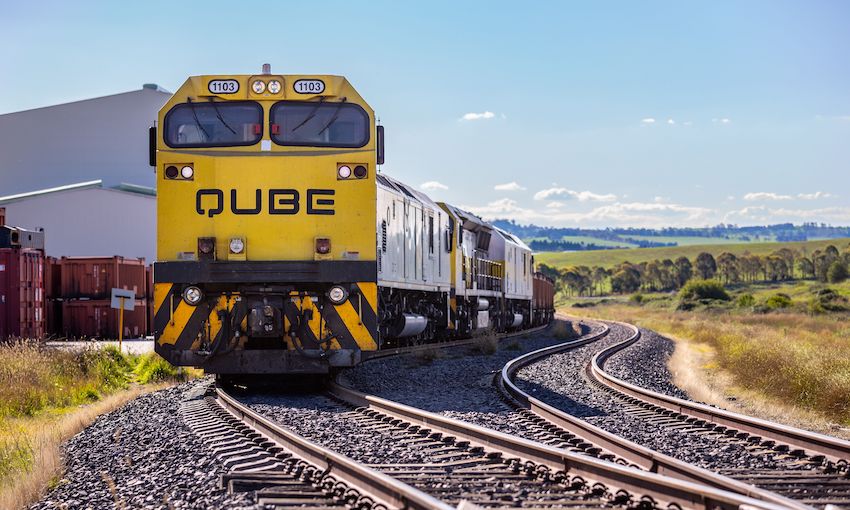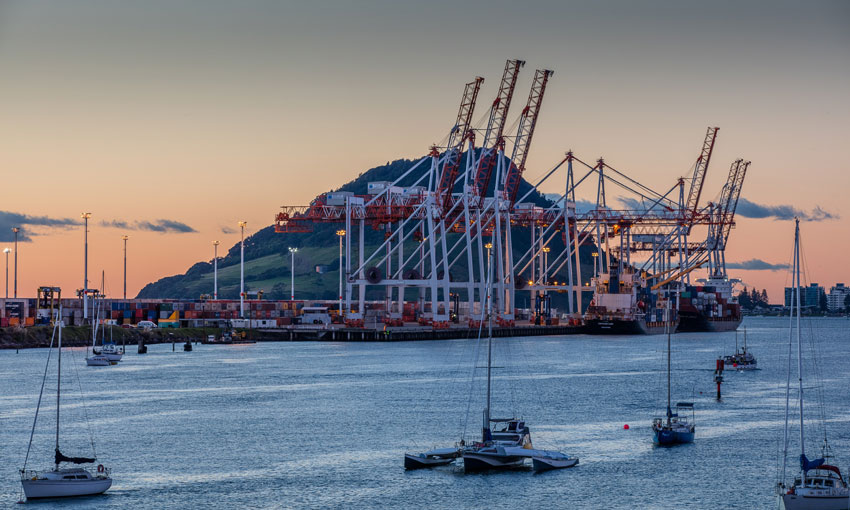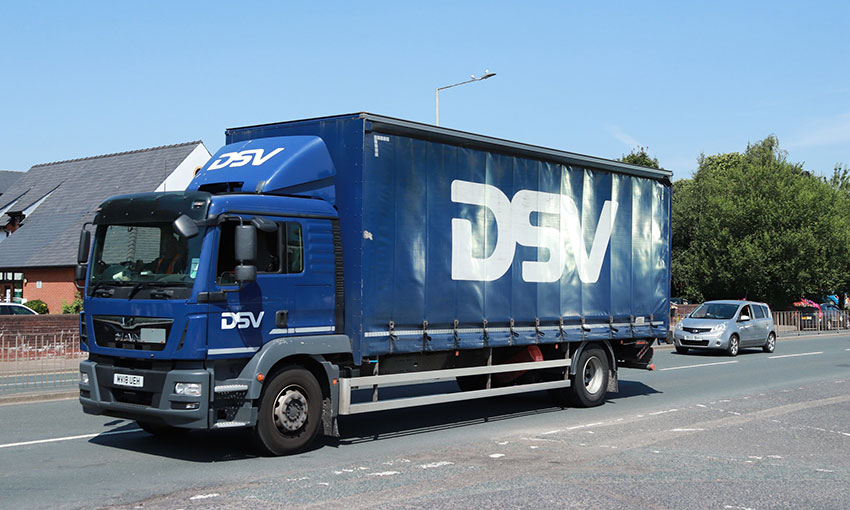QUBE has reported strong growth for the first half of the 2023 financial year, but earnings dropped in its Ports & Bulk division.
The logistics giant posted an underlying revenue increase of 23% in the first half of this financial year to $1.5 billion, and EBITA growth of 31% to $145 million.
In an investor meeting on Thursday (23 February) Qube managing director Paul Digney reported “very good margin uplifts” across most of the company’s value drivers.
He highlighted growth in the Logistics & Infrastructure division, where revenue grew by 32% to $692 million in the first half of this financial year, driven in part by high volumes of container, rail and project cargo activities.
In the Ports & Bulk division, revenue grew 18% to $806 million, but underlying EBITA decreased by 8.5% to $64 million.
Mr Digney and Qube chief financial officer Mark Wratten noted some challenges around productivity and costs in the Ports & Bulk business.
“[The decrease was] mainly related to ongoing labour shortage issues in some small pockets of the Ports & Bulk business unit, and an inability to fully recover inflationary escalations relating to some bulk mining contracts in the period,” they said.
“It’s not just the inflationary impacts that impacted our margins in the first half of the business; the labour shortages led to large productivity challenges and our ability to move volumes.
“We’re just not getting the efficiency out of that part of the business. It’s in isolated pockets, mostly in regional areas of western Australia.”
Mr Digney and Mr Wratten said Qube’s labour force is healthy in many of the areas it operates in, but it is looking to encourage people to work in the regions such as the Pilbara and Goldfields, which are experiencing the deficiencies.
“There is competing markets in those areas that we’ve got to be mindful of, but our people and culture and our HR team are working through things to make Qube an even better place to come and work for in those regions, so we’re working through ways of encouraging new recruits.”
And Patrick Terminals, of which 50% is owned by Qube, posted an underlying revenue growth of 14% to $400 million and improved margins during the financial period.
“Patrick’s market share across the four ports in period declined slightly to 41%, impacted mainly due to losing a shipping service to DP World in Melbourne during the period,” Mr Digney and Mr Wratten told investors.
“But also during the period, the Patrick team renewed and secured new contracts, which should see Patrick’s market share rebound.”
A number of projects are on track for delivery in 2023, such as the rail terminal and automated truck handling in Port Botany, crane automation in Port of Brisbane, the East Swanson rail facility in Port of Melbourne and redevelopment in Fremantle.
Beyond the port terminals, Qube has been progressing with its Moorebank Logistics Park terminal infrastructure development and the Import Export (IMEX) rail shuttle.
Qube announced the acquisition of 12 new locomotives in December last year, for the first interstate service to be handled under automation at the IMEX terminal at Moorebank.
Mr Digney and Mr Wratten shared their thoughts on Aurizon’s recent announcement that it had entered a $1.8-billion contract that would grow its containerised freight business.
“We’re not a rail business, we’re actually a logistics business that delivers a rail solution, so we can watch that space,” they said.
“If there’s too much capacity going on, we can operate these trains somewhere else, we’ll continue to look at niche markets in that space, we’ve got terminals that’ll be in demand, we’ve got a domestic freight forwarding business that we can use spare capacity.
“It’s an interesting movement by Aurizon, but that’s their call.”
Looking ahead into the second half of the financial year, Mr Digney and Mr Wratten said they expect the labour availability issues to continue, and emerging challenges created severe weather in New Zealand – namely Cyclone Gabrielle.
“We do expect some softening in import volumes in the second half, particularly around discretionary spending on imported items, consumer spending due to the inflation and the higher interest rates hitting out economy at the moment,” they said.
“Both the Logistics & Infrastructure and Patrick business is expecting some softening on their import volumes in the second half, although our export volumes will remain strong and could offset a fair bit of this.”





